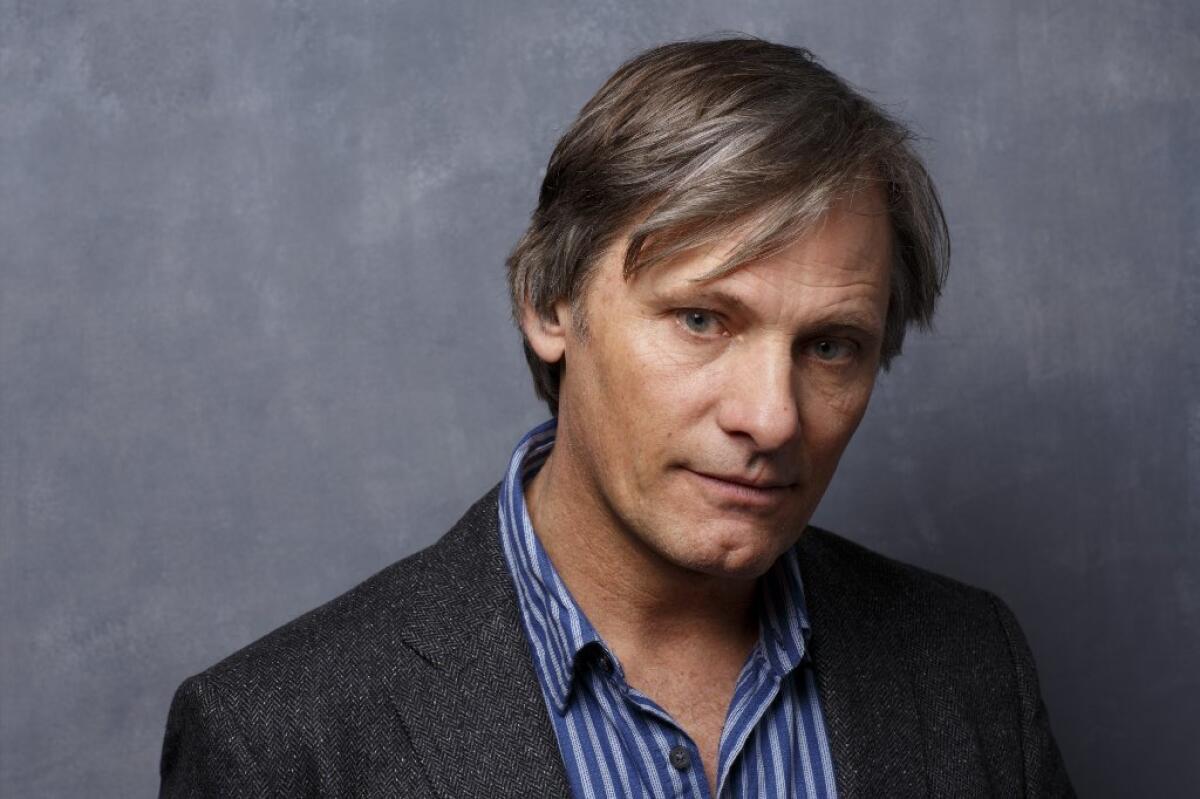‘Captain Fantastic’s’ examination of parenting and integrity appeals to star Viggo Mortensen

“Captain Fantastic” protagonist Ben Cash lives off the grid, raising his six children in the woods at the highest standards of intellectual and physical training. Some might question his methods, or at least consider them extreme. But at the heart of Ben’s tutelage is critical thinking, and star Viggo Mortensen is down with that.
“The kids are reading all kinds of books, comparing different interpretations of the same material,” says the actor, whose accolades for the role include both Golden Globe and Screen Actors Guild Awards nominations. “For example, the father talks to them about every single religion he can think of, and atheism, agnosticism, every ‘ism.’ He’s fine with each of his kids deciding to be whatever they want. But they need to be able to explain why.”

Viggo Mortenson stars in “Captain Fantastic.”
And that is consistent with Mortensen, with whom just about any conversation becomes a deep dive. He’s well-informed and engaged. He has a track record of making artistic choices with integrity, whether in acting, music, photography, poetry or in founding the Perceval Press to bring forward artists he admires. He relates Ben’s iconoclastic lifestyle and eventual realization of his own need to change to basic questions of parenting and even civic participation.
“I think it’s a matter of degree and being flexible,” he says, urging people to “turn the dial” figuratively and literally, to force themselves to take in other views. “Democracy, parenting, they’re not fixed things. Relationships. They’re not fixed; it’s a process. We say, ‘This is a democratic country.’ It is, as long as we work to keep it so, and progress and evolve.”
Whoever played Ben Cash would have to pull off the daunting intellectual side of the part, as well as the demanding physical one, and convey a loving father figure. Check, check and check. Perhaps the role’s essence, though, and how it might frame the great challenge of parenting, is the great challenge at the heart of acting: Active listening.
“It’s a lot harder to do what Ben does: Not to say, ‘No, because I said so,’ but simply to say, ‘No, I don’t think so, and here’s why. If you have a strong disagreement, I’d like to hear why. In the end, I’m your dad, but let’s talk about it.’ That takes a lot of energy,” says Mortensen, who has one adult son.
While Ben is engaging his children in a sincere, direct and open way, Mortensen is so engaging his young acting partners that the “acting” effectively disappears. Beneath the veneer of highfalutin intellectualism and the comedy of blunt honesty, the viewer responds to the truth of those connections. And when some of Ben’s choices lead to disastrous consequences, the nakedness of his devastation is painful to watch.
Mortensen says it’s entirely legitimate to “wonder if the father is too honest sometimes, or too strict, too intense. But basically, I agree with him. A 7-year-old asks you about sex or death, give ’em an honest answer. Maybe you can modify a little, use different words, and still be honest with a 7-year-old. That doesn’t mean it’s all wrong. The basic idea is good.”
Mortensen is struck by audiences’ responses to the film, no matter where it’s shown.
“What people are saying to us after screenings, whether it’s Ireland or Denmark or Spain or France, is ‘My family …’ or ‘The country …’ or ‘I had an experience …!’ Sometimes they’ll say with absolute certainty, ‘It’s obviously about this,’ and I’ll be surprised. ‘Matt [Ross, the film’s auteur], is it about that, do you think?’ ‘It could be.’ But there has been uniformly passionate engagement with the movie. That doesn’t happen all the time.”
This is the man who was the foretold king in the “Lord of the Rings” films — which had their share of dedicated fans. With “Captain Fantastic,” he’s talking about a level of engagement that feels deeply personal.
“Several times, it’s won audience awards. The Seattle Film Festival goes on for a month and usually you get to show your movie several times. We got to show it once in the final days and we won the audience award. That’s happened in Europe at several places, the Rome Film Festival. There’s something to that.”
See the most read stories this hour »
More to Read
From the Oscars to the Emmys.
Get the Envelope newsletter for exclusive awards season coverage, behind-the-scenes stories from the Envelope podcast and columnist Glenn Whipp’s must-read analysis.
You may occasionally receive promotional content from the Los Angeles Times.






